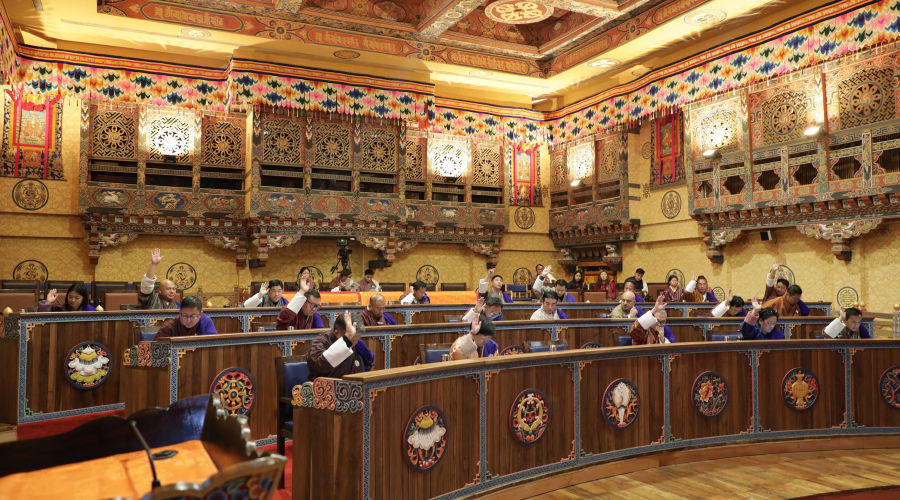 The National Council today continued its deliberations on the Goods and Services Tax Bill 2025, with detailed discussions on the proposed exemption of GST on five essential items: rice, oil, salt, wheelchairs for persons with disabilities, and sanitary pads. Although the National Assembly had endorsed exemptions on these items, the Council’s Legislative Committee recommended otherwise. However, a majority of members voted in favour of exempting these items through a show of hands.
The National Council today continued its deliberations on the Goods and Services Tax Bill 2025, with detailed discussions on the proposed exemption of GST on five essential items: rice, oil, salt, wheelchairs for persons with disabilities, and sanitary pads. Although the National Assembly had endorsed exemptions on these items, the Council’s Legislative Committee recommended otherwise. However, a majority of members voted in favour of exempting these items through a show of hands.
Dagana’s MP raised strong objections to the Committee’s proposal to include GST on wheelchairs. Highlighting the need for inclusive policies, he said the country has around 48,000 persons with disabilities.
“There are around 12,000 with severe disabilities, and only about 500 of them can use wheelchairs. Exempting GST on wheelchairs will not only benefit children with disabilities but also ease the burden on their families,” said Birendra Chimoria, MP, Dagana.
“Wheelchairs are not luxury goods. They are essential for those who rely on them. One day, any of us might need one. Let’s support this exemption now for the future,” said Tshering Tshomo, MP, Zhemgang.
“Disability can affect anyone at any time. Article 9, Section 22 of our Constitution mandates the state to provide security in cases of disability. A tax exemption would be a step in fulfilling that responsibility,” said Tshering, MP, Gasa.
“From my time at Tendu School, I have seen that most persons with disabilities come from low-income families. Taxing essential mobility aids like wheelchairs, which cost up to Nu 50,000, would add to their hardship,” said Tashi Dendup, MP, Samtse, National Council.
“The National Assembly rightly recommended GST exemption for sanitary pads and wheelchairs, along with rice, salt, and oil, items directly linked to our food security and public welfare,” said Ugyen Tshering, MP, Paro.
Some members also questioned the five per cent GST on basic commodities such as rice, oil and salt, especially since the country imports most of these goods.
“Everyone, rich or poor, relies on rice, salt, and oil. These are daily essentials. Taxing them affects all of us equally,” said Phuntsho Rabten, Eminent Member.
“In rural Bhutan, these items are not just food, they are also used as semso contributions. With rice now costing at least Nu 1,500 a bag, exempting GST would be a major relief,” said Kencho Tshering, MP, Bumthang.
Meanwhile, the Legislative Committee argued against the exemptions, citing broader economic implications.
“There is a risk of misuse of official power. People, especially shopkeepers, know how difficult the import process through Phuentshogling can be. Implementing GST will help prevent such issues,” said Tshering Wangchen, Member, Legislative Committee.
“For instance, a wheelchair may cost around Nu 100 with tax. However, as it gets shipped, additional costs such as shipping and transaction fees are added. This results in tax being applied on top of tax, ultimately burdening the consumer,” said Pema Tashi, Member, Legislative Committee.
Other committee members stressed that the revenue from GST helps fund public services, and any exemptions must be carefully weighed against long-term national interests.
Deliberations will continue on Monday before final adoption.
Devika Pradhan
Edited by Kipchu








